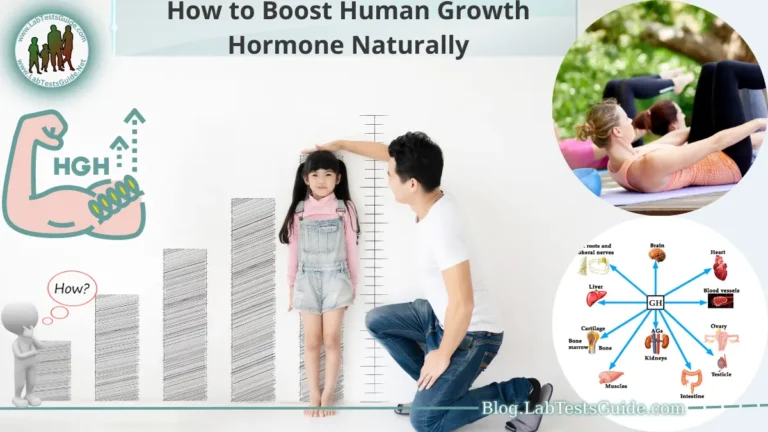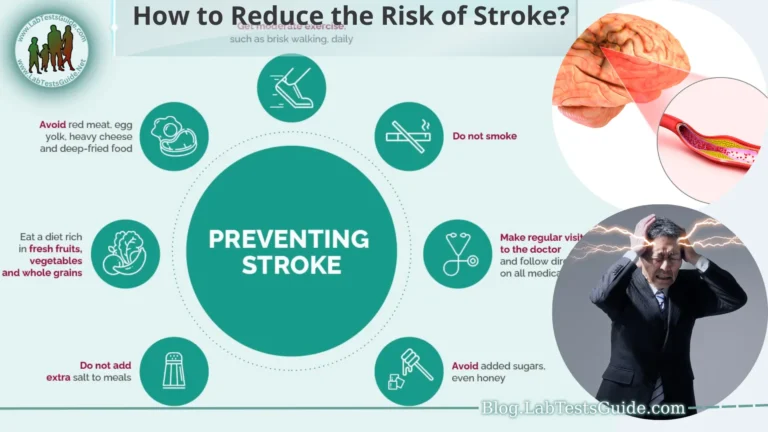Good dental health and oral hygiene play a vital role in maintaining overall health and well-being. Dental health refers to the condition of your teeth, gums, and mouth, while oral hygiene refers to the practices and habits that help keep your mouth clean and free from dental problems.

Maintaining good dental health is essential for several reasons. Firstly, it helps prevent common dental issues such as cavities, gum disease, and bad breath. Secondly, oral health problems can have a significant impact on your quality of life, affecting your ability to eat, speak, and smile with confidence. Additionally, poor dental health has been linked to various systemic health conditions, including cardiovascular disease, diabetes, and respiratory infections.
Importance of Dental Health:
Here are several reasons why maintaining good dental health is crucial.
- Oral Health and Overall Well-being: Oral health is closely linked to overall health and well-being. Poor dental health has been associated with various systemic conditions, including cardiovascular disease, diabetes, respiratory infections, and adverse pregnancy outcomes.
- Prevention of Dental Problems: Good dental health practices, such as regular brushing, flossing, and dental check-ups, help prevent common dental problems. These include cavities, gum disease (gingivitis and periodontitis), tooth loss, and bad breath.
- Confidence and Self-esteem: A healthy and attractive smile can boost your confidence and self-esteem.
- Proper Chewing and Digestion: Your teeth play a crucial role in chewing food properly, which aids in digestion. Maintaining good dental health ensures that you can effectively break down food into smaller particles for easier digestion and nutrient absorption.
- Clear Speech: Your teeth and tongue are essential for clear speech. Dental problems, such as missing teeth or misaligned jaws, can affect your ability to pronounce words properly, leading to speech difficulties. By maintaining good dental health, you can help ensure clear and articulate speech.
- Saving Time and Money: Preventive dental care, including regular check-ups and cleanings, can help identify and address potential dental issues early on. By detecting problems at an early stage, you can avoid more extensive and costly dental treatments in the future. Investing in dental health now can save you both time and money in the long run.
Remember, maintaining good dental health is not limited to brushing and flossing alone. It also involves adopting a healthy diet, avoiding harmful habits such as smoking, and seeking professional dental care. By making dental health a priority, you can enjoy the benefits of a healthy mouth and a confident smile throughout your life.
Daily Oral Hygiene Routine:
Here are the key components of an effective daily oral hygiene routine.
Brushing Techniques:
- Brush your teeth at least twice a day, preferably in the morning and before bed.
- Use a soft-bristled toothbrush and fluoride toothpaste.
- Hold your toothbrush at a 45-degree angle to your gums.
- Brush in gentle, circular motions, covering all tooth surfaces and the gumline.
- Spend at least two minutes brushing your teeth each time.
Choosing the Right Toothbrush and Toothpaste:
- Consider using an electric toothbrush, which can provide more thorough cleaning and be easier to use, especially for those with limited dexterity.
- Use fluoride toothpaste to strengthen your tooth enamel and prevent cavities.
Flossing and Interdental Cleaning:
- Floss your teeth at least once a day to remove plaque and food particles from between your teeth.
- Use about 18 inches of dental floss, winding most of it around your middle fingers, leaving a small section to work with.
- Gently slide the floss between your teeth, curving it around each tooth in a C shape.
- Move the floss up and down against the side of each tooth, including just below the gumline.
- Consider using interdental cleaners, such as interdental brushes or water flossers, as an alternative or complement to traditional flossing.
Mouthwash and Antiseptic Rinses:
- Rinse your mouth with an antiseptic mouthwash after brushing and flossing to help kill bacteria and freshen your breath.
- Use the mouthwash according to the instructions on the label, swishing it around your mouth for the recommended time.
Tongue Cleaning:
- Use a tongue scraper or the bristles of your toothbrush to gently clean your tongue.
- Start at the back of your tongue and move forward, scraping or brushing off any debris.
- This helps remove bacteria that can cause bad breath and improve overall oral hygiene.
By following these daily oral hygiene practices, you can effectively remove plaque, prevent cavities and gum disease, maintain fresh breath, and promote optimal dental health. Remember to replace your toothbrush every three to four months or sooner if the bristles become frayed. Additionally, visit your dentist regularly for professional cleanings and check-ups to ensure your oral health is in excellent condition.
Diet and Dental Health:
Here are some important considerations for maintaining a diet that supports dental health.
Foods That Promote Dental Health:
- Calcium-rich foods: Include dairy products like milk, cheese, and yogurt in your diet. Calcium strengthens teeth and bones.
- Crunchy fruits and vegetables: Apples, carrots, celery, and other crunchy produce stimulate saliva production, which helps wash away food particles and neutralize acids in the mouth.
- Leafy greens: Spinach, kale, and other leafy greens are high in vitamins and minerals that support oral health.
- Lean proteins: Incorporate lean meats, poultry, fish, and eggs into your diet. These foods are rich in phosphorus, which is beneficial for tooth health.
- Nuts and seeds: Almonds, walnuts, chia seeds, and flaxseeds provide healthy fats, vitamins, and minerals that promote dental health.
Foods to Avoid for Good Oral Health:
- Sugary and sticky foods: Limit your consumption of sugary snacks, candies, and sweets. These foods promote tooth decay by providing fuel for harmful bacteria in the mouth. Avoid sticky foods that can get stuck in between your teeth.
- Acidic foods and drinks: Be cautious with acidic foods and beverages such as citrus fruits, sodas, and sports drinks. Acidic substances can erode tooth enamel, leading to tooth sensitivity and cavities.
- Starchy and processed foods: Chips, crackers, and processed snacks often contain refined carbohydrates that break down into sugars. These can contribute to tooth decay.
Healthy Eating Habits for Dental Health:
Timing of meals: Try to limit snacking between meals as it exposes your teeth to a prolonged acid attack. If you do snack, choose tooth-friendly options like fruits or vegetables.
Drinking water: Water is the best beverage choice for your oral health. It helps rinse away food particles and keeps your mouth hydrated, reducing the risk of dry mouth.
Avoid sugary drinks: Limit or avoid sugary beverages such as sodas, fruit juices, and energy drinks. Opt for unsweetened drinks or water instead.
Dental Hygiene After Eating:
- Brushing after meals: Wait for at least 30 minutes after eating before brushing your teeth to allow saliva to neutralize acids. Brushing too soon after consuming acidic foods or beverages can damage your enamel.
- Rinsing your mouth: After eating, rinse your mouth with water to help remove food particles and reduce acidity levels.
Remember, maintaining a balanced diet that includes nutrient-rich foods, limiting sugary and acidic foods, and practicing good oral hygiene habits go hand in hand in promoting optimal dental health. Regular dental check-ups are also essential for early detection and treatment of any dental issues.
Protecting Your Teeth:
Here are some tips to help protect your teeth.
Use Mouthguards:
- Mouthguards are essential for protecting your teeth during sports and recreational activities that carry a risk of dental injuries.
- Wear a properly fitted mouthguard that provides cushioning and support for your teeth and jaws. Custom-fitted mouthguards from your dentist offer the best protection.
Avoid Teeth Grinding:
- Teeth grinding, also known as bruxism, can cause tooth wear, jaw pain, and other dental problems.
- If you grind your teeth, consult your dentist, who may recommend a custom-made nightguard to protect your teeth while you sleep.
- Stress management techniques and relaxation exercises can also help reduce teeth grinding.
Avoid Using Teeth as Tools:
- Your teeth are meant for chewing food, not as tools for opening bottles, tearing packages, or biting nails.
- Using your teeth for non-food purposes can cause chipping, cracking, or other damage. Always use appropriate tools instead.
Protect Against Tooth Sensitivity:
- Tooth sensitivity can be caused by enamel erosion, gum recession, or tooth decay.
- Use a toothpaste specially formulated for sensitive teeth to help reduce sensitivity.
- Avoid consuming overly hot or cold foods and drinks that may trigger sensitivity.
Limit Acidic and Sugary Foods:
- Acidic foods and beverages can erode tooth enamel, while sugary foods can contribute to tooth decay.
- Limit your consumption of acidic drinks like sodas, sports drinks, and citrus juices.
- When consuming acidic foods, rinse your mouth with water afterward to help neutralize the acid.
- Reduce your intake of sugary snacks, candies, and sugary drinks. If consumed, brush your teeth afterward or rinse your mouth with water.
Don’t Smoke or Use Tobacco Products:
- Smoking and tobacco use have severe negative effects on oral health, including increased risk of gum disease, tooth loss, and oral cancer.
- Quitting smoking and avoiding tobacco products can significantly improve your dental and overall health.
By following these tips, you can protect your teeth from injuries, wear, and decay, and maintain a healthy and confident smile. Remember, prevention is key, and a proactive approach to dental care is essential for long-term oral health.
Tips for Children’s Dental Health:
Here are some tips for promoting children’s dental health.
Start Early:
- Begin cleaning your baby’s mouth even before the first tooth erupts. Gently wipe their gums with a clean, damp cloth after feedings.
- Once the first tooth appears, start brushing it with an infant-sized toothbrush and water.
Introduce Proper Brushing Techniques:
- Teach your child to brush their teeth properly. Use a soft-bristled toothbrush suitable for their age and a pea-sized amount of fluoride toothpaste.
- Encourage them to brush at least twice a day, focusing on all tooth surfaces and the gumline.
- Supervise brushing until your child is around 7-8 years old to ensure they are doing it effectively.
Make Brushing Fun:
- Make toothbrushing an enjoyable activity for children by using colorful toothbrushes and flavored toothpaste.
- Play their favorite songs or use a timer to make brushing for the recommended two minutes more engaging.
- Consider using interactive toothbrushing apps or videos to make it a fun and educational experience.
Teach Proper Flossing Techniques:
- Introduce flossing when your child’s teeth start to touch, usually around the age of 2-3 years.
- Use child-friendly floss picks or floss holders to make flossing easier.
- Teach them to gently guide the floss between teeth and along the gumline, removing any food particles or plaque.
Limit Sugary Snacks and Drinks:
- Reduce your child’s intake of sugary snacks, candies, and sugary beverages. Encourage healthier snack options like fruits and vegetables.
- If sugary treats are consumed, encourage brushing or rinsing with water afterward to minimize the exposure to sugar.
Schedule Regular Dental Check-ups:
- Take your child for regular dental check-ups starting from the age of 1 or within six months of the eruption of their first tooth.
- Regular dental visits help detect any dental issues early and allow the dentist to provide preventive treatments and guidance.
Lead by Example:
- Be a role model for your child’s dental health by practicing good oral hygiene habits yourself.
- Brush and floss your teeth together as a family, making it a positive and shared experience.
Educate about the Importance of Dental Health:
- Explain to your child why dental health is important, emphasizing the role of brushing, flossing, and regular dental visits in maintaining a healthy smile.
- Use age-appropriate books, videos, or educational materials to teach them about dental health and oral hygiene.
By implementing these tips, you can help your child develop good oral hygiene habits and establish a strong foundation for a lifetime of dental health. Regular dental care and positive dental experiences will contribute to their overall well-being and ensure a healthy smile as they grow.
Visiting the Dentist Regularly:
Here are the key reasons why regular dental check-ups are important.
Early Detection of Dental Problems:
- Regular dental visits allow your dentist to identify any dental issues early on, before they progress and become more serious.
- Dentists can detect problems such as tooth decay, gum disease, oral infections, and oral cancer during routine examinations.
- Early detection enables prompt treatment, which can help prevent further damage and potential complications.
Professional Teeth Cleaning:
- Even with regular brushing and flossing, plaque and tartar can accumulate in hard-to-reach areas of the mouth.
- Dental cleanings performed by dental professionals remove plaque, tartar, and surface stains, helping to prevent tooth decay and gum disease.
- Professional cleanings also leave your teeth feeling clean and refreshed.
Gum Disease Prevention:
- Gum disease, also known as periodontal disease, is a common oral health issue that can lead to gum inflammation, bleeding gums, tooth loss, and other complications.
- Regular dental visits allow your dentist to assess the health of your gums and identify early signs of gum disease.
- Dentists can provide professional treatments and guidance to manage and prevent gum disease.
Oral Cancer Screening:
- Oral cancer is a serious and potentially life-threatening condition.
- During dental check-ups, dentists perform oral cancer screenings to detect any abnormal changes or signs of oral cancer.
- Early detection of oral cancer significantly improves treatment outcomes, making regular screenings vital.
Monitoring Dental Health Over Time:
- Regular dental visits allow your dentist to monitor your oral health over time, tracking any changes or trends.
- They can compare previous dental records, X-rays, and oral examinations to assess your dental health and identify any potential areas of concern.
Addressing Dental Anxiety:
- For individuals who experience dental anxiety or fear, regular dental visits can help in gradually overcoming these feelings.
- Establishing a positive and trusting relationship with your dentist can make dental visits more comfortable and reduce anxiety.
It is generally recommended to visit the dentist every six months for routine check-ups and cleanings. However, the frequency may vary based on individual needs and oral health conditions. Your dentist will provide specific recommendations tailored to your situation.
FAQs:
How often should I brush my teeth?
It is recommended to brush your teeth at least twice a day, ideally in the morning and before bedtime.
How long should I brush my teeth?
Dentists recommend brushing your teeth for a minimum of two minutes each time to ensure thorough cleaning.
Is it necessary to floss every day?
Yes, flossing is an important part of oral hygiene. It helps remove plaque and debris from between teeth and along the gumline. It is recommended to floss at least once a day.
What type of toothbrush and toothpaste should I use?
Use a soft-bristled toothbrush and a fluoride toothpaste. Soft bristles are gentle on your gums and tooth enamel, while fluoride toothpaste helps prevent tooth decay.
When should my child have their first dental visit?
The American Dental Association recommends scheduling a child’s first dental visit within six months after their first tooth appears or by their first birthday, whichever comes first.
How often should I replace my toothbrush?
It is recommended to replace your toothbrush every three to four months or sooner if the bristles become frayed or worn out.
Can poor oral health affect overall health?
Yes, poor oral health has been linked to various systemic conditions, including heart disease, diabetes, respiratory infections, and complications during pregnancy.
What can I do to prevent bad breath?
Practicing good oral hygiene, including brushing your teeth and tongue, flossing, and using mouthwash, can help prevent bad breath. Additionally, staying hydrated, avoiding tobacco products, and regular dental check-ups can contribute to fresh breath.
Are electric toothbrushes more effective than manual toothbrushes?
Electric toothbrushes can be more effective at removing plaque, especially for individuals who have difficulty with manual dexterity. However, both electric and manual toothbrushes can be effective if used properly.
What should I do in a dental emergency?
In a dental emergency, such as a knocked-out tooth or severe toothache, it is important to contact your dentist immediately. They can provide guidance and arrange for urgent care if needed.
Remember, while these FAQs address common concerns, it is always best to consult your dentist or dental professional for personalized advice and recommendations based on your specific dental health needs.
Conclusion:
In conclusion, maintaining dental health and practicing good oral hygiene are essential for overall well-being. By following a daily oral hygiene routine, paying attention to your diet, and protecting your teeth, you can promote healthy teeth and gums.
Children’s dental health requires special attention, starting from a young age. Introducing proper brushing techniques, limiting sugary snacks, and scheduling regular dental check-ups help establish a foundation for a lifetime of good oral health.
Taking steps to maintain healthy gums, such as proper brushing and flossing techniques, regular dental visits, and a balanced diet, can prevent gum disease and its associated complications.
Visiting the dentist regularly is crucial for early detection of dental problems, professional teeth cleanings, and oral cancer screenings. It also provides an opportunity to receive guidance on oral hygiene practices and address any concerns or questions.






